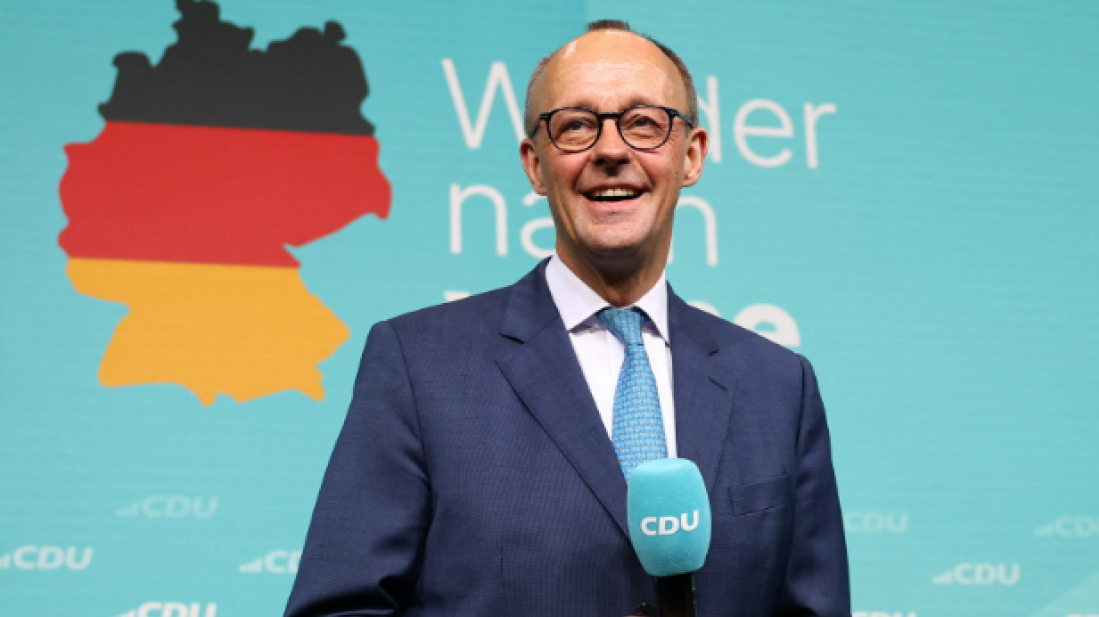Georgia strengthens Armenia ties to secure transit role and support South Caucasus connectivity
Georgia is increasing its focus on regional connectivity and infrastructure cooperation with Armenia, as competition over new transport routes and cha...

Poland’s top diplomat in Berlin has criticized Germany’s incoming government for its plan to impose stricter border controls, warning that such measures could disrupt daily cross-border traffic and strain the EU internal market.
With Chancellor-designate Friedrich Merz and his coalition government set to take office next Tuesday, controversy has emerged over their commitment to introduce tighter migration controls. Merz’s conservative bloc, in partnership with the center-left Social Democrats, has pledged a hardline stance on migration as part of its broader push to win back right-leaning voters.
“Anyone who tries to enter Germany illegally must expect to be stopped at the German border from May 6,” said Thorsten Frei, the incoming head of the Chancellery, earlier this week.
Polish Ambassador to Germany Jan Tombiński voiced concern over the impact of these plans. “The current controls at the German-Polish border are already a problem for daily border traffic and the functioning of the EU internal market,” Tombiński told POLITICO. “We therefore do not want to see a tightening of border controls.”
When asked about Poland’s stance on returning asylum-seekers, Tombiński reaffirmed that Warsaw remains committed to its obligations under EU law, specifically the Common European Asylum System (CEAS), which prohibits rejecting asylum-seekers at internal EU borders.
The German position has also drawn legal scrutiny. A spokesperson for Austria’s interior ministry reminded that “the European Court of Justice has ruled that informal returns are not legally possible when an application for asylum is made,” though expressed confidence that Germany’s actions would remain lawful.
Merz is expected to travel to Warsaw on Wednesday, where he will need to explain and possibly defend his border policy to Polish officials. This could prove diplomatically sensitive, as one of his campaign promises was to improve relations with neighboring countries, including Poland.
Incoming Interior Minister Alexander Dobrindt signaled that Berlin aims to press for faster reforms at the European level. “CEAS is going in the right direction, but is too slow,” he said, noting that talks with EU partners are already underway.
Still, doubts remain about Germany’s capacity to implement such policies. Jochen Kopelke, head of the country’s police union, warned that enforcing comprehensive border checks would require at least 20,000 additional officers. “We do not consider comprehensive controls and returns at German borders to be realistically feasible,” he said, citing Germany’s extensive 3,700-kilometer border.
A seven-month-old Japanese macaque has drawn international attention after forming an unusual bond with a stuffed orangutan toy after being rejected by its mother.
Divers have recovered the bodies of seven Chinese tourists and a Russian driver after their minibus broke through the ice of on Lake Baikal in Russia, authorities said.
Pakistan said it carried out cross-border strikes on militant targets inside Afghanistan after blaming a series of recent suicide bombings, including attacks during the holy month of Ramadan, on fighters it said were operating from Afghan territory.
Italy said a fond farewell to the Winter Olympics on Sunday with an open-air ceremony in the ancient Verona Arena that celebrated art and sporting achievement at a Games lauded as a model for how to stage such events.
Ukraine’s President Volodymyr Zelenskyy has approved new sanctions targeting Russian maritime operators, defence-linked companies and individuals connected to Moscow’s military and energy sectors, according to official decrees issued on Saturday.
The United Nations mission in Afghanistan said on Monday it had received “credible reports” that at least 13 civilians were killed and seven others injured in overnight Pakistani airstrikes inside Afghanistan.
The former British ambassador to the U.S. Peter Mandelson has been arrested by police in London on suspicion of misconduct in public office.
At least 25 members of Mexico's National Guard have died during a wave of violence in the state of Jalisco after the killing of a drug lord, the country's security minister has said.
The European Parliament on Monday (23 February) postponed a vote on the EU’s trade deal with the U.S. after President Donald Trump imposed a blanket 15% import duty.
The U.S. Supreme Court has overturned key elements of President Donald Trump’s global tariff policy, creating uncertainty ahead of his March meeting with China’s Xi Jinping. The ruling raises fresh questions about the future of U.S.-China trade relations and the stability of the global economy.
You can download the AnewZ application from Play Store and the App Store.

What is your opinion on this topic?
Leave the first comment